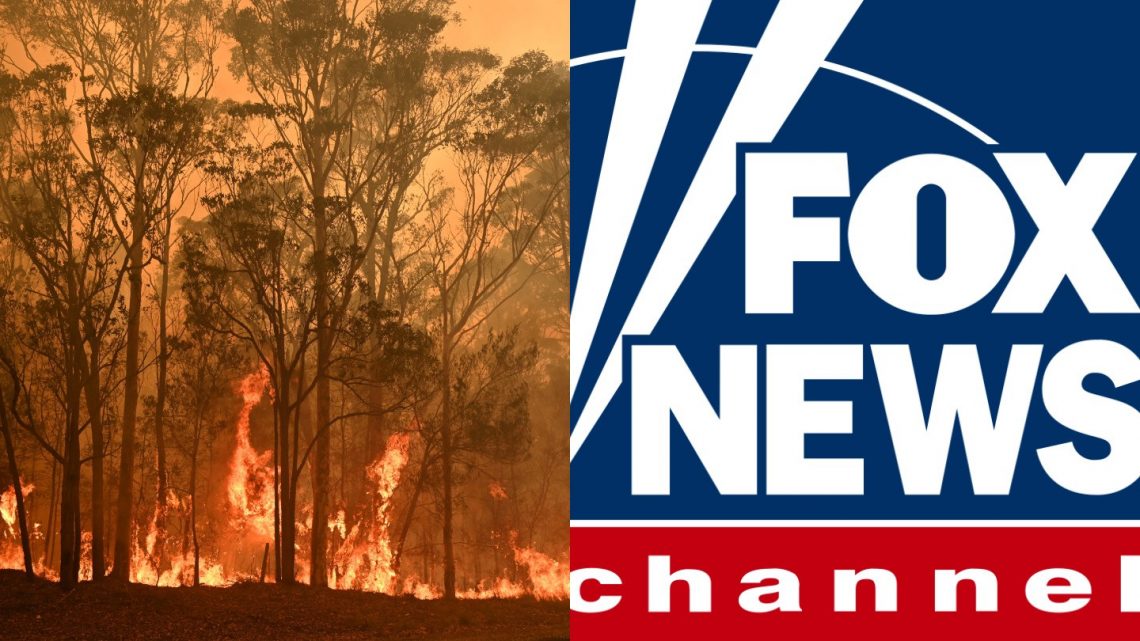
Why is Climate Change Denialism So Strong in Australia?
June 17, 2020The number of climate change deniers in Australia is more than double the global average, according to a new study—making it one of the top three countries in the world in terms of the percentage of people who don’t believe the science.
The findings were published this week in Canberra University’s “Digital News Report: Australia 2020”: an online survey conducted at the start of this year as part of a global study looking at consumer behaviours in 40 countries around the world.
Of the 2,131 Australians involved, eight percent said they considered climate change to be “not at all serious”—putting Australia just behind Sweden (9 percent) and the United States (12 percent) for worldwide ranking of climate denialism. The global average was just three percent.
Fifty-eight percent of Australian respondents said they considered climate change to be a very or extremely serious problem (compared to the global average of 69 percent); 21 percent considered it somewhat serious; and 10 percent considered it to be not very serious. Only 10 countries included in the survey were less concerned than Australia.
The study also found, perhaps unsurprisingly, that an individual’s level of concern around climate change is influenced quite significantly by factors such as age, gender, place of residence, and the type of news consumed. Young people expressed far more concern than older generations; women were more concerned than men; and people living in the city tended to think it was a more serious issue than those living in regional and rural Australia.
The number of Australians who said they don’t pay any attention to news about climate change (15 percent) was also more than double the global average (seven percent). Right-wing news consumers were more likely to ignore news about climate change than left-wing consumers, and less likely to trust the accuracy of the reporting. Overall, regardless of political persuasion, only 36 percent of Australian consumers said they thought climate change reporting was accurate.
So why exactly is climate change denialism so strong in Australia—especially compared to other countries like the UK, where denialists accounted for just three percent of the population?
Is it the high number of right-wing voices given influential platforms in the media, or the fact that the Australian economy is so reliant on fossil fuels, or the fact that Australia has a Federal government with a vested interest in disputing climate science?
“To be honest, it is probably a bit of all of those things,” Caroline Fisher, co-author of the report and a Professor of Journalism at the University of Canberra, told VICE over email. “We [also] have an ageing population, and older people are much less concerned about climate change than young people. [Plus] there are conservative voices in the media and the debate is very partisan along left and right—and we see that in news consumption.”
Professor Fisher, along with her colleague and lead author Sora Park, identified “a strong connection between the brands people use and whether they think climate change is serious.
“More than one-third (35 percent) of people who listen to commercial AM radio (such as 2GB, 2UE, 3AW) or watch Sky News consider climate change to be ‘not at all’ or ‘not very’ serious, followed by Fox News consumers (32 percent),” they noted, in an article for The Conversation. “This is perhaps not surprising when some of the most strident critics of climate change science can be found on commercial AM radio, Sky and Fox News."
That the survey was conducted during the late stages of Australia’s horrific and unprecedented 2019/20 bushfire season is particularly interesting. Even as most of the country sits at the coalface of the climate crisis, these findings reveal an alarming number of people who are ambivalent if not altogether skeptical towards the issue of climate change.
We’ve seen this before. In September last year, while reporting on the severe drought and bushfires ravaging rural New South Wales, VICE spoke to a number of conservative-leaning community members who refused to believe climate change was responsible for the disasters. Some claimed it was a random weather event, others claimed it was the norm, while a number of people blamed the Greens Party and their alleged opposition to back-burning.
“It’s Mother Nature,” said one local, whose town was on the frontline when the first wave of fires swept through drought-stricken NSW. “I'm just not convinced that it's all human caused. It's very easy to always blame everything on climate change.”
But denialism is just one concern; indifference is another. As the authors of the University of Canberra report state, these recent findings “point to a significant section of the community that simply don’t pay attention to the issue, despite the calamitous bushfires.
“This presents a real challenge to news organisations,” they note. “They must find ways of telling the climate change story to engage the 15 percent of people who aren’t interested, but are still feeling its effects.”

